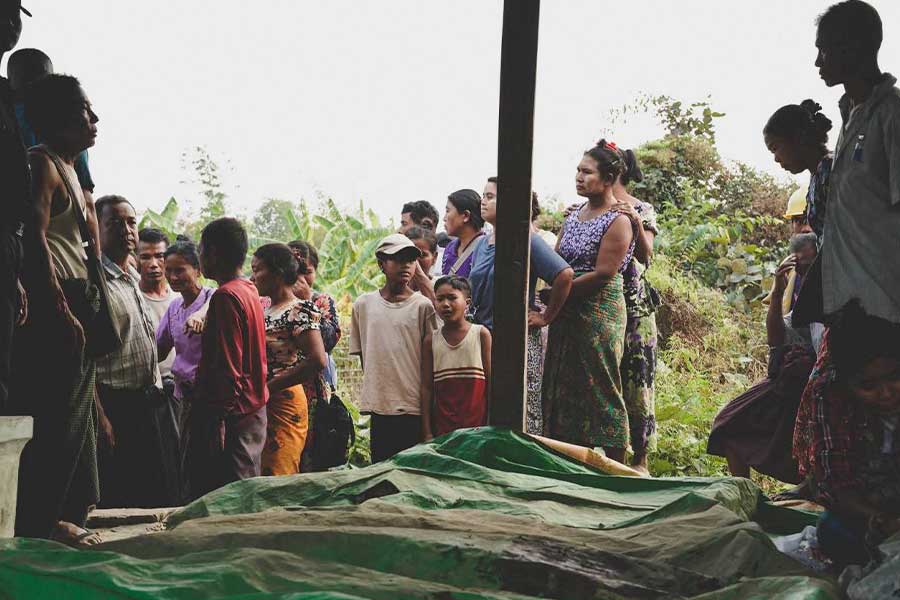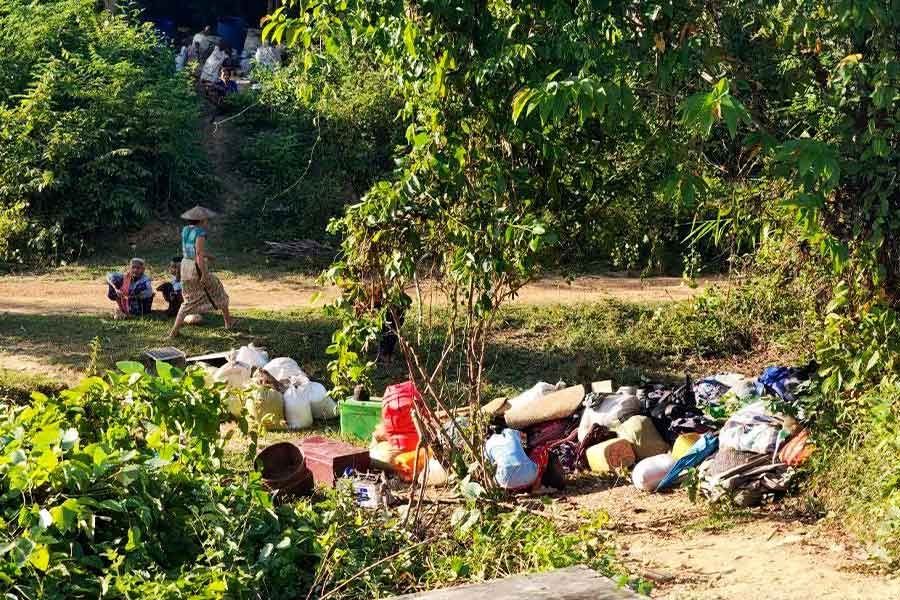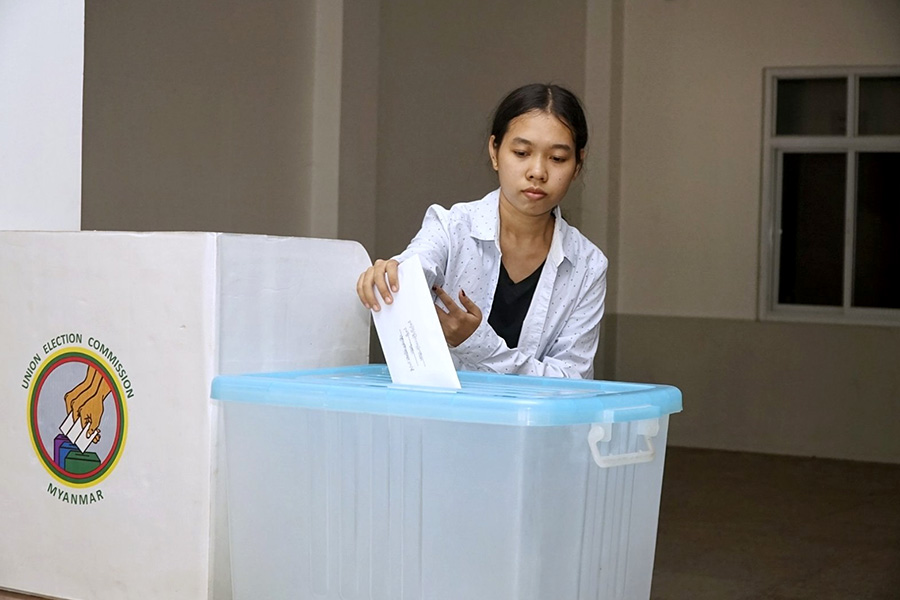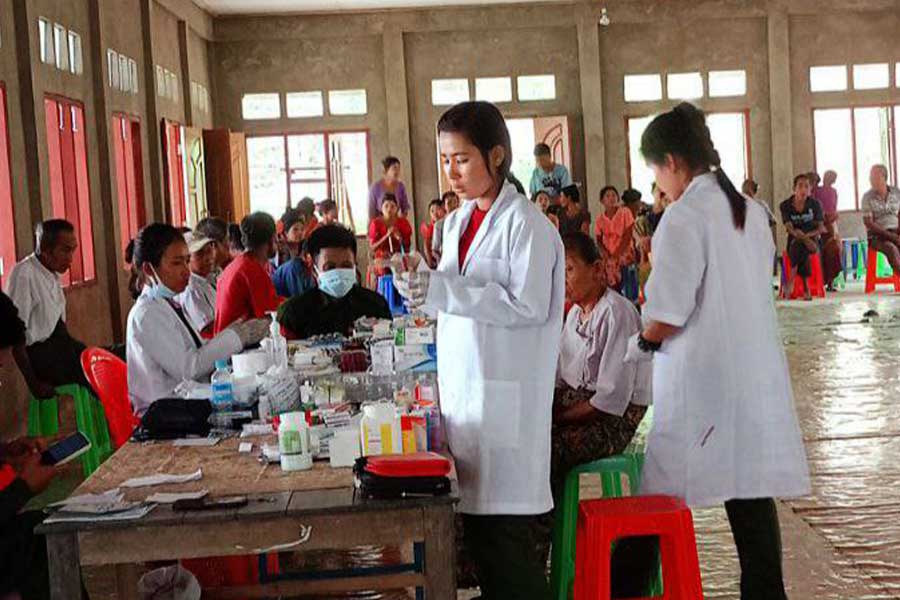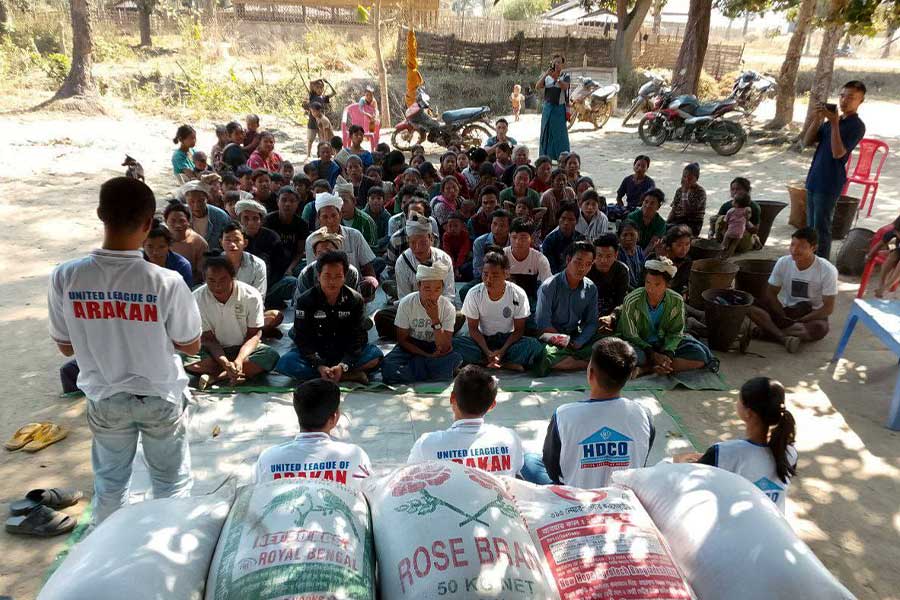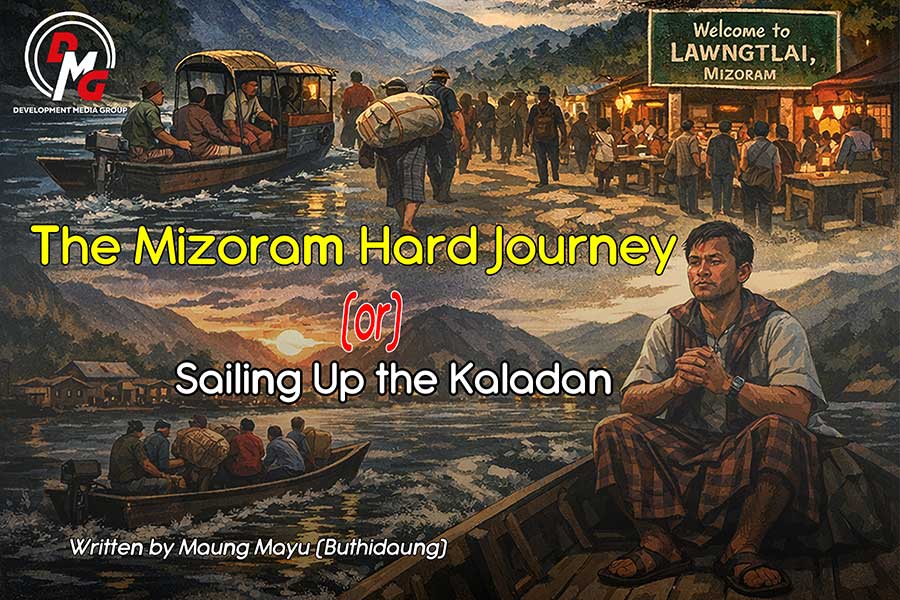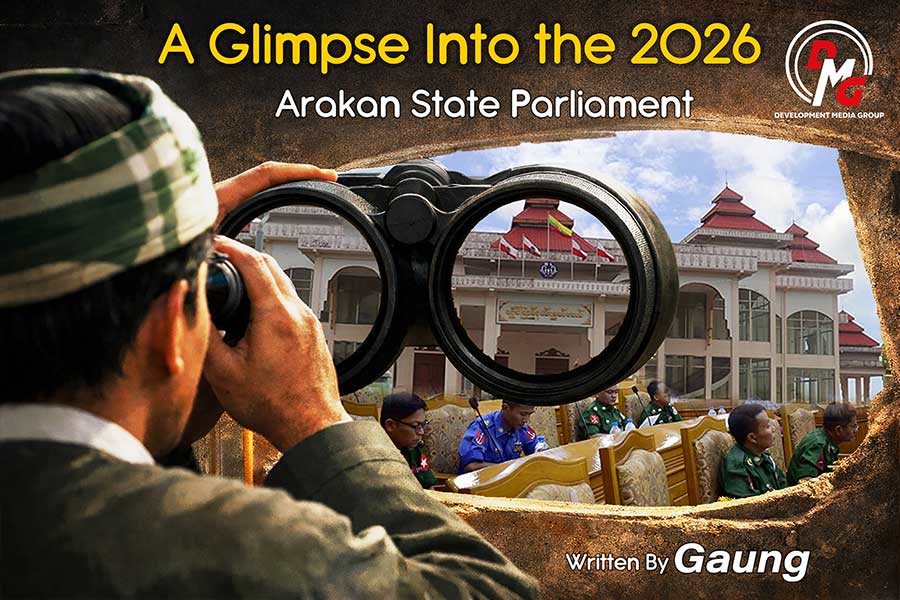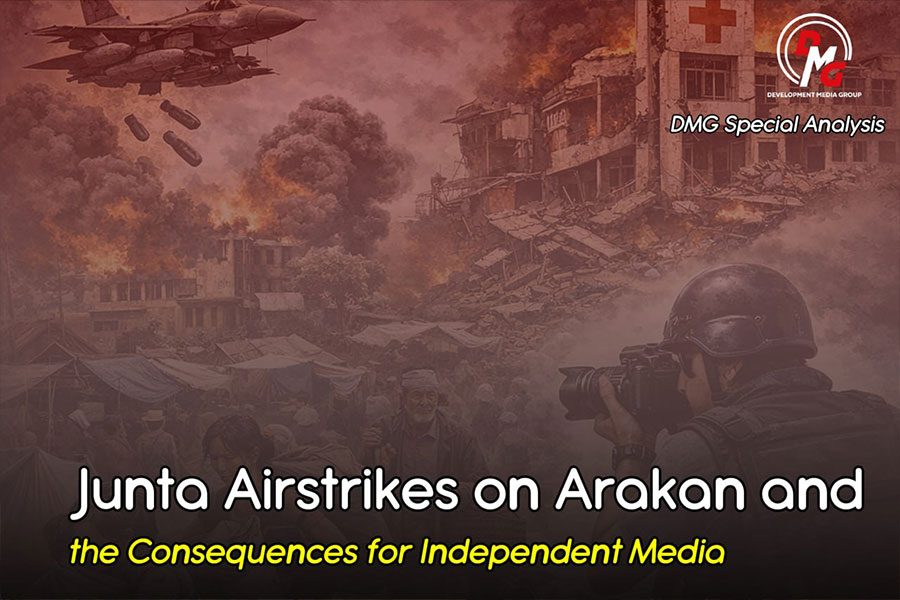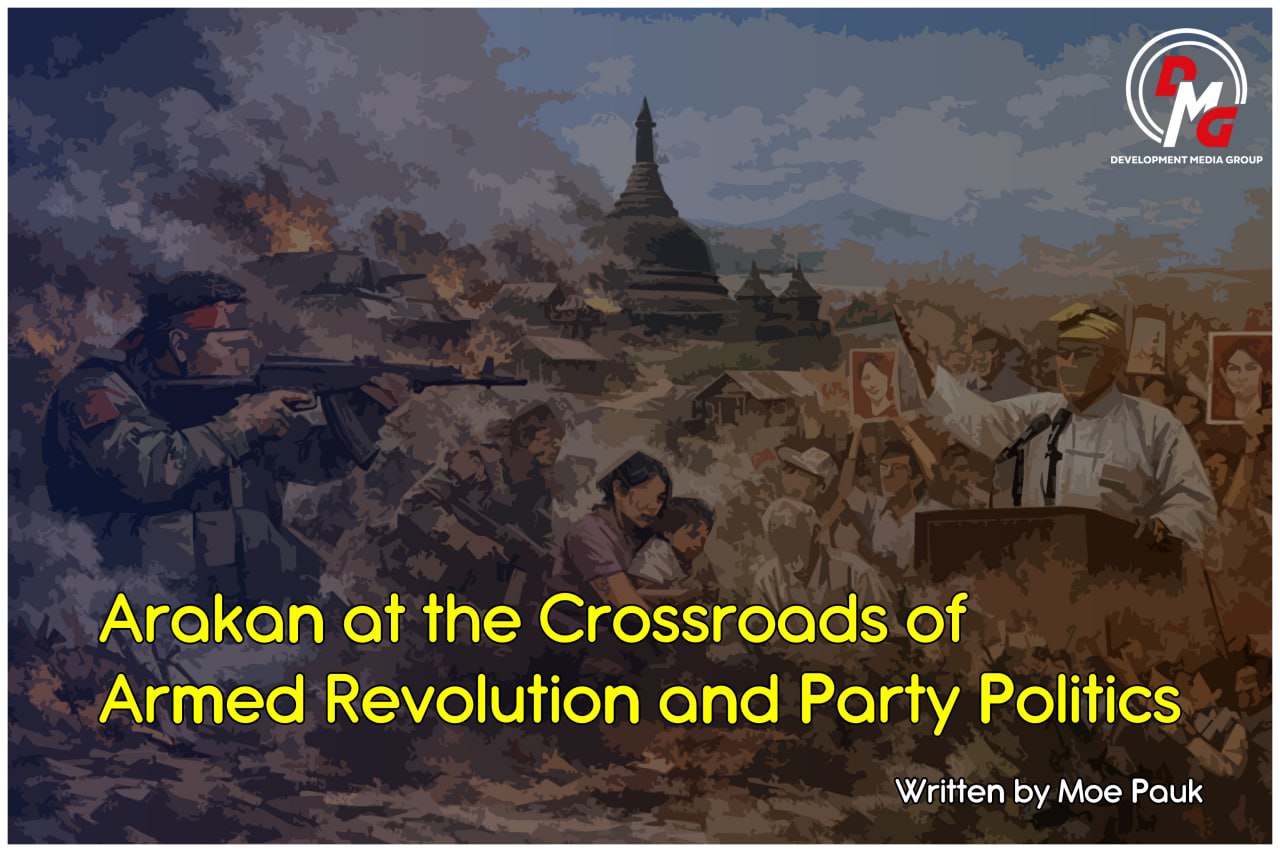- 15 mass casualty incidents from regime airstrikes reported in Arakan State since 2023
- Kyaukphyu IDPs forced to flee again amid junta airstrikes and artillery attacks
- New Diplomatic Movements Between Bangladesh’s New Government and the Arakan Public Administration
- Junta claims over 24 million ballots cast in 2025 poll, cites strong youth turnout
- ULA expands HIV prevention, healthcare services for sex workers in AA-held areas
Not All Bad for Mro IDPs at Kyauktaw’s Displacement Camps
Currently, there are no military activities in the Yoe Chaung area, and neither side has deployed troops there. Despite the calm, displaced people from Yoe Chaung settlements have refused to return home, as they have access to healthcare services and education at the displacement camps where they currently live — in contrast to their home villages, where they have no public services.
25 Oct 2023
.jpg)
Written by Aung Thura
It has been nearly a year since the Myanmar military and the Arakan Army (AA) observed an informal ceasefire last year. However, more than 58,000 people remain at displacement camps, either unwilling or unable to return home.
Among them are about 2,000 ethnic Mro people upstream of the Yoe Chaung Creek in Kyauktaw Township. They are among the earliest victims of the fighting, displaced in December 2018.
Currently, there are no military activities in the Yoe Chaung area, and neither side has deployed troops there. Despite the calm, displaced people from Yoe Chaung settlements have refused to return home, as they have access to healthcare services and education at the displacement camps where they currently live — in contrast to their home villages, where they have no public services.
“Our village is far from healthcare facilities. Transportation is also poor. When we lived in our village, child mortality was high. Many pregnant women died while travelling to hospitals [to give birth],” said displaced woman Ma Aye Aye Khine from Parchay (Mro) village in Kyauktaw.
Mro people make up the majority in the area upstream of the Yoe Chaung Creek. The area is very far from proper towns, and is largely undeveloped due mostly to poor transportation networks.
The area’s residents mainly rely on water transport, and civil servants do not want to serve in the area because of its remote location.
A total of 1,989 people from there remain at the Wartaung, Taungminkalar and Ahtet Myat Hle displacement camps in Kyauktaw. Most agree that their circumstances as IDPs are significantly better for them in terms of healthcare and education.
“We had schools [in the home village], but teachers did not come regularly. Even if we return to our village, they won’t come to schools,” said Ko Kyan Taing Aung from Theinchaung (Mro) Village in Kyauktaw Township.
More than 100 IDPs from the Yoe Chaung Creek area moved to Maungdaw Township in 2021 at the arrangement of the military regime as they faced difficulties in healthcare, education and transportation sectors.
Some IDPs want to return to their homes, but they are uncertain about going back. Explosive remnants of war (ERWs) and landmines are also a big challenge preventing the return of IDPs.
IDPs will be able to return home only when they can work and live safely in their respective villages, said U Maung Win, an IDP from Kinbi Village in Kyauktaw Township, who is currently taking shelter at the Wah Taung IDP camp.
IDPs from the Yoe Chaung Creek area say it is necessary for the relevant authorities to clear landmines so that they can return home.
“We have not been able to return to our home for about five years. No one can tell us whether there are landmines or not in our area. We will be able to return home after the two sides cease hostilities,” he added.
Local people in the Yoe Chaung Creek area mainly engage in farming. IDPs in the Yoe Chaung Creek area rely on K30,000 in monthly cash assistance from the World Food Programme (WFP) and say they have not received assistance from the military regime for over a year.
IDPs say that they have difficulties in large part because they have to make a living working as odd-job workers.
“We earn a living as odd-job workers and cannot send our children to tuition classes. We are not happy to live in displacement camps,” U Maung Win said.
The military regime needs to take education and healthcare matters for IDPs into consideration, said U Oo Tun Win, a former Lower House lawmaker for Kyauktaw Township.
“The military regime must consider the health matters for IDP returnees,” the ex-legislator said. “The military council must provide healthcare that is equal to the population’s needs. The military regime will also need to provide education and transportation for IDP returnees.”




